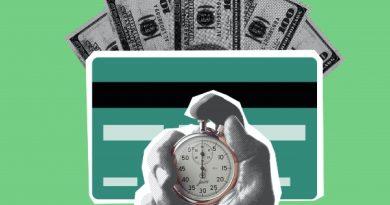How to Fix Credit Score – In 5 Simple Ways Ontario, Canada

Introduction
A good credit score is essential to apply for loans, mortgages, or credit cards. Your credit score is a three-digit number that represents your creditworthiness and is calculated based on your credit history, credit utilization, payment history, and other factors. In Canada, credit scores range from 300 to 900, with a score of 650 or higher considered good.
However, getting approved for credit and loans can be challenging if you have a low credit score. Fortunately, there are steps you can take to improve your credit score and increase your chances of getting approved for credit. In this article, we’ll discuss how to fix credit in Canada and provide you with practical tips to improve your credit score.
Table of Contents

Check Your Credit Report

The first step in improving your credit score is to check your credit report. Your credit report Canada contains information about your credit history, including your credit accounts, payment history, and inquiries. You can request a free copy of your credit report from the two credit bureaus in Canada, Equifax, and TransUnion. Review your credit report carefully and dispute any errors or inaccuracies.
Pay Your Bills on Time
Your payment history is one of the most significant factors that affect your credit score. Late payments, missed payments, and defaulting on loans can have a negative impact on your credit score. Make sure you pay your bills on time, every time. Set up automatic payments or reminders to help you stay on track.
Reduce Your Debt

Your credit utilization ratio is another essential factor that affects your credit score. It’s the amount of credit you use compared to your credit limit. If you’re using a significant amount of your available credit, it can lower your credit score. Try to pay down your debt and keep your credit utilization ratio below 30%.
Increase Your Credit Limit
Increasing your credit limit can also help improve your credit score. It can increase your available credit, which can improve your credit utilization ratio. However, be careful not to use the additional credit as an excuse to increase your debt.
Keep Your Credit Accounts Open

The length of your credit history is also a factor that affects your credit score. If you close your credit accounts, it can shorten your credit history and lower your credit score. Keep your credit accounts open, even if you’re not using them. It can help improve the length of your credit history and increase your credit score.
Apply for New Credit Sparingly
Every time you apply for new credit, it can have a negative impact on your credit score. It can result in a hard inquiry, which can lower your credit score. Try to apply for new credit sparingly and only when you need it.
Use Different Types of Credit
Using different types of credit, such as installment loans, credit cards, and mortgages, can also help improve your credit score. It shows that you can manage, different types of credit and can increase your credit mix, which is another factor that affects your credit score you can compare loan options here.
Consider a Secured Credit Card
If you’re having trouble getting approved for a traditional credit card, consider a secured credit card. A secured credit card requires a security deposit, which serves as collateral. It can help you build or rebuild your credit history and improve your credit score.
Seek Professional Help

If you’re struggling with debt or credit problems, don’t be afraid to seek professional help, contact us. There are credit counseling agencies and debt management programs that can help you get back on track. They can provide you with advice and support to improve your credit score and manage your debt.
How to fix credit score in Canada after Late Payments:
Late payments can have a lasting impact on your credit score and financial well-being. When you fail to make timely payments on your credit accounts, it negatively affects your payment history, which is a significant factor in determining your creditworthiness. Here’s How to fix your credit score after Late Payments:
- Assess the Damage: Start by reviewing your credit reports from the major credit bureaus—Equifax, Experian, and TransUnion. Look for any late payment entries and note their impact on your credit score. Understanding the severity of the late payments will help you develop a plan of action.
- Catch Up on Payments: If you have outstanding late payments, make them as soon as possible. Paying off overdue balances demonstrates your commitment to meeting your financial obligations and can help improve your credit score over time.
- Establish a Payment Schedule: Create a budget that allows you to make regular, on-time payments. Set up automatic payments or use reminders to ensure you never miss a due date. Consistently making timely payments is crucial for rebuilding your credit.
- Communicate with Creditors: If you have a legitimate reason for the late payments, such as financial hardship or an emergency, consider reaching out to your creditors. Explain the situation and ask if they can remove the late payment entries from your credit reports. While not guaranteed, some creditors may be willing to work with you.
- Monitor Your Progress: Regularly check your credit reports to ensure that the late payments are updated accurately. As time passes and you establish a positive payment history, the impact of the late payments will gradually diminish.
How to fix credit score Canada after Identity Theft:
Identity theft is a severe issue that can wreak havoc on your credit score and financial life. It occurs when someone fraudulently uses your personal information to open accounts, make unauthorized purchases, or engage in other fraudulent activities. Here’s How to fix credit after Identity theft:
- Act Swiftly: If you suspect identity theft, take immediate action. Contact the credit bureaus and request a fraud alert to be placed on your credit reports. This alert will notify potential lenders to verify your identity before granting credit in your name.
- Review Your Credit Reports: Obtain copies of your credit reports and carefully review them for any suspicious accounts, inquiries, or late payments that you did not authorize. Report any fraudulent activity to the credit bureaus and the respective creditors involved.
- File a Police Report: Contact your local law enforcement agency and file a police report detailing the identity theft. This report can serve as evidence when disputing fraudulent accounts or charges.
- Dispute Fraudulent Entries: Contact the credit bureaus in writing and provide them with copies of the police report and any supporting documentation. Request the removal of fraudulent accounts, inquiries, and late payments from your credit reports.
- Place a Credit Freeze: Consider placing a credit freeze on your credit files. This restricts access to your credit information, making it more difficult for identity thieves to open new accounts in your name.
- Monitor Your Accounts: Continuously monitor your financial accounts and credit reports for any signs of unauthorized activity. Regularly review bank statements, credit card statements, and online accounts to detect and report any suspicious transactions immediately.
- Work with Creditors and Collection Agencies: If you discover fraudulent accounts or collection entries resulting from identity theft, contact the creditors or collection agencies involved. Provide them with the necessary documentation, such as the police report and identity theft affidavit, to prove that the accounts are fraudulent. Request that they close the accounts and remove the associated negative information from your credit reports.
How to fix credit score Canada after Collections:
When you fail to repay a debt, it may be sent to a collection agency. Collections can significantly harm your credit score and make it challenging to obtain new credit. Here’s how to fix credit after collections :
- Validate the Debt: When contacted by a collection agency, request written validation of the debt. Legally, they must provide documentation verifying that you owe the debt, the amount owed, and the original creditor’s information.
- Negotiate a Settlement: If the debt is valid and you’re unable to pay the full amount, consider negotiating a settlement with the collection agency. Offer to pay a reduced amount in exchange for the debt being reported as “paid” or “settled” on your credit reports. Get any settlement agreement in writing before making any payments.
- Pay in Full or Set Up a Payment Plan: If you can afford to pay the full amount, consider doing so. This will show a positive resolution of the debt on your credit reports. Alternatively, if you need to set up a payment plan, negotiate terms that are feasible for your budget and ensure that the collection agency agrees to stop reporting the account to the credit bureaus once the payments are made as agreed.
- Request a “Pay for Delete” Agreement: In some cases, you may negotiate with the collection agency to remove the collection account from your credit reports entirely in exchange for full payment. This can have a significant positive impact on your credit score.
- Obtain Documentation: Throughout the process, keep copies of all communications, agreements, and proof of payment. This documentation is essential if any disputes arise in the future.
- Be Patient and Persistent: Resolving collections can take time. Stay diligent in your efforts to pay off the debt or negotiate a settlement. Monitor your credit reports to ensure that the collection account is updated correctly or removed once the debt is resolved.
How long it takes to fix a credit score :
Alongside addressing late payments, identity theft, and collections, it’s crucial to build a positive credit history. Here are steps you can take to improve your credit score over time:
- Pay Bills on Time: Consistently make all your payments on time, including rent, utilities, and other recurring bills. Timely payments demonstrate responsible financial behavior and positively impact your credit score.
- Reduce Credit Card Balances: Aim to keep your credit card balances low. Ideally, use no more than 30% of your available credit. Paying down your credit card balances can significantly improve your credit utilization ratio and positively impact your credit score.
- Limit New Credit Applications: Avoid opening multiple new credit accounts within a short period. Each credit application can result in a hard inquiry on your credit report, which can temporarily lower your credit score. Apply for new credit only when necessary and in moderation.
- Maintain a Mix of Credit: Having a diverse mix of credit accounts, such as credit cards, installment loans, and a mortgage, can positively influence your credit score. However, do not open new accounts solely for this purpose. Only take on credit that you can manage responsibly.
- Keep Old Accounts Open: Length of credit history is an essential factor in determining your credit score. If you have old, positive accounts, keep them open even if you’re not actively using them. Closing old accounts can shorten your credit history and potentially lower your credit score.
- Use Secured Credit Cards or Credit Builder Loans: If you’re unable to obtain traditional credit, consider applying for a secured credit card or credit builder loan. These options allow you to demonstrate responsible credit usage and build a positive payment history.
- Regularly Monitor Your Credit: Stay vigilant by monitoring your credit reports regularly. You’re entitled to a free copy of your credit report from each bureau annually through AnnualCreditReport.com. Reviewing your reports can help you detect errors, track your progress, and identify areas for improvement.
Patience and Persistence:
Repairing your credit score takes time and perseverance. There is no quick fix, but by implementing these strategies consistently, you can improve your creditworthiness and regain financial stability. Be patient with the process and remain dedicated to responsible financial practices. Over time, the negative impact of late payments, identity theft, and collections will fade, and your credit score will reflect your improved financial habits.
It’s important to note that seeking professional advice from reputable credit counseling agencies or credit repair services can provide valuable guidance and support throughout the credit repair journey. They can help you navigate complex situations, understand your rights, and provide personalized strategies based on your unique circumstances.
Remember, rebuilding your credit is a journey, but with determination, discipline, and responsible financial behavior, you can achieve a healthier credit score and regain control of your financial future.
FAQs (Frequently Asked Questions)
- How long does a late payment stay on my credit report? Late payments can remain on your credit report for up to seven years from the date they were reported. However, their impact lessens over time as you demonstrate positive payment history.
- Can I remove a late payment from my credit report if it was accurate? Accurate information generally cannot be removed from your credit report. However, you can focus on building a positive payment history moving forward, which will help outweigh the impact of past late payments.
- What should I do if I am a victim of identity theft? If you suspect or confirm that you are a victim of identity theft, act quickly. File a police report, contact the credit bureaus to place a fraud alert, and notify the affected creditors. Monitor your credit reports regularly and consider identity theft protection services for added security.
- Can I settle collection accounts for less than the full amount owed? Yes, it is possible to negotiate a settlement with collection agencies where you pay less than the full amount owed. However, it’s important to obtain written confirmation of the settlement terms before making any payments.
- How long does it take to rebuild credit after financial setbacks? The time it takes to rebuild credit varies depending on the severity of the setbacks and your individual circumstances. With consistent effort and responsible financial behavior, you can begin to see improvements in your credit score within six to twelve months. However, complete credit recovery may take several years.
- Will hiring a credit repair company guarantee positive results? No, hiring a credit repair company does not guarantee positive results. While reputable credit repair companies can provide guidance and assistance, they cannot remove accurate negative information from your credit report. It’s important to be cautious of any company promising immediate or guaranteed credit score improvements.
- How often should I check my credit reports? It’s recommended to check your credit reports from each bureau at least once a year. Regularly monitoring your credit allows you to catch errors, detect fraudulent activity, and track your progress as you work on improving your credit score.



